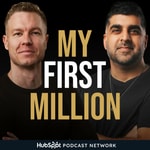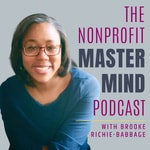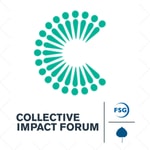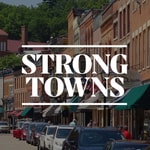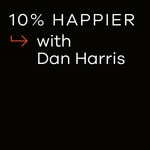The Round Table: A YVote Podcast – Details, episodes & analysis
Podcast details
Technical and general information from the podcast's RSS feed.

The Round Table: A YVote Podcast
YVote
Frequency: 1 episode/4d. Total Eps: 512

Recent rankings
Latest chart positions across Apple Podcasts and Spotify rankings.
Apple Podcasts
🇩🇪 Germany - newsCommentary
29/05/2025#97🇩🇪 Germany - newsCommentary
28/05/2025#67🇩🇪 Germany - newsCommentary
27/05/2025#50
Spotify
No recent rankings available
Shared links between episodes and podcasts
Links found in episode descriptions and other podcasts that share them.
See all- https://cogenerate.org/
40 shares
- https://www.thefire.org/
37 shares
- https://www.aei.org/
24 shares
RSS feed quality and score
Technical evaluation of the podcast's RSS feed quality and structure.
See allScore global : 42%
Publication history
Monthly episode publishing history over the past years.
The First Time You Step Into It Won’t Be the Last
Season 6 · Episode 267
mardi 20 mai 2025 • Duration 28:21
Welcome back to The Round Table! This week, our hosts Daniella and Sauda speak with Corinne Lerma, a Youth250 Bureau member. She is one of 100 young adult fellows who not only advise, but also collaborate with nonprofit organizations. But, Corinne’s commitment to helping young learners doesn’t just stop there. In addition to this, she is also a preschool educator, a Cincinnati Museum Center instructor, an artist, and a writer. Together, Corinne and the hosts dive into her passions, her journey, and how she manages to balance so many roles at once.
Starting with the roots of Corinne’s interests in history, the arts, civic engagement, and education, the hosts explore how her rural upbringing shaped her perspective, her thoughts on the future of art, and her personal creative process. Corinne shares how she realized college wasn’t the right path for her, how working with 4-5 year olds helped her define her core values, and why civic education at an early age matters. She also reflects on the challenges she’s faced and the achievements she’s proud of despite them.
The conversation wraps up with a look at Corinne’s role in the Youth250 Bureau and how that opportunity came to be, before she turns the tables and asks the hosts to share their own favorite ways to stay civically engaged.
Tune in to hear what Corinne and the hosts strive to make time for and why it’s essential to nurturing civic minded communities.
How to Think, Not What to Think
Season 6 · Episode 268
mardi 13 mai 2025 • Duration 28:53
Welcome back to The Round Table! This week, our hosts Kassandra, Daniel, and Zarina sit down with Alice Sheehan, CFO of AllSides Technologies. Alice is passionate about promoting media literacy and works closely with teachers and students across all 50 states to encourage understanding of opposing viewpoints on important civic issues. She believes strongly in teaching young people “how to think,” not “what to think.”
During the episode, Alice shares her journey into civic engagement and explains how her early involvement in local issues shaped her passion today. She talks about the value of focusing efforts where they can have the biggest impact, starting within one’s own community. Alice also reflects on the challenges young people face when trying to prioritize so many civic and political issues at once.
The conversation highlights growing concerns around civil discourse and the decline of respectful dialogue between opposing sides. Alice discusses the role of social media in deepening political divides, pointing out how platforms are often separated into “liberal” and “conservative” spaces. This separation, she explains, makes it harder for individuals to truly understand different perspectives.
Throughout the episode, Alice offers thoughtful insights on media literacy, political discourse, and active civic engagement. Her experiences show why developing critical thinking skills and engaging thoughtfully with others is more important than ever.
Thanks for listening!
Media Smart and Ballot Ready, Informed and Always Ready
Season 6 · Episode 256
mardi 3 décembre 2024 • Duration 39:57
At this week’s Round Table, Heba, Inyoo, Kassandra, and Preena unpack the results of the 2024 elections. They analyze the surprising performance of Donald Trump and the strong showing of down-ballot Republicans, exploring the factors that contributed to these outcomes. The hosts also dissect the strategies employed by various campaigns, with a particular focus on where Kamala Harris may have fallen short in reaching key voter groups.
The conversation shifts to the ongoing impact of race and gender in American politics, examining how these issues continue to shape election outcomes and influence public perception. The hosts then explore the economic concerns that dominated the election, such as inflation, the rising cost of living, and immigration. They evaluate how candidates communicated their positions on these issues and consider the effects of these messages on voter behavior. The hosts also discuss how voters’ economic struggles may have influenced their choices at the polls.
They go on to reflect on the media’s role in shaping public opinion during the election cycle. The hosts assess how misinformation and a lack of media literacy may have impacted voters’ decisions, highlighting the need for a more informed electorate that can navigate political narratives with greater discernment.
Throughout the episode, the hosts emphasize the importance of media literacy, civic engagement, and cross-partisan dialogue. They encourage listeners to focus on understanding diverse viewpoints instead of dismissing those who disagree.
Thanks for listening.
We Have To Fiercely Guard Our Hope
Season 4 · Episode 167
jeudi 8 décembre 2022 • Duration 37:44
At this week's Round Table, Collin, Erina, Kenisha, and Madeline spoke with Dr. Steven Becton, Chief Officer of Equity, Inclusion and Belonging at Facing History and Ourselves. Dr Becton has spent his career working deeply in and with schools to create whole school culture and transformational educational experiences that equip educators, while also empowering students, to overcome the systemic issues that have placed them at risk. We talked about the structures that uphold racism; the impact of structural racism on communities and schools; the importance of disrupting narratives, and confirmation biases, about what people can and can’t do, whether Black, new immigrants, non cis gendered, or anything outside dominant identities; and the power to teaching difficult history to students along with teaching them to be critical thinkers and giving them space to come to their own conclusions–which is far afield from the purported “indoctrination” that worries people in relation to race. We talked about how America was born in a paradox (not a contradiction), with two competing ideas sitting as truths for people–that is, that all men are created equal at the same time that the founders were enslaving people–and how we still live with paradoxes and the consequences of them. We talked about how as activists, we too often fail to connect change to policy, yet most of what happens in our country is influenced by policy as much as by culture and changing hearts and minds. Dr Becton underscored that the anti-racism movement doesn’t need allies; it needs co-conspirators. He reminded us of the danger of thinking it’s THOSE people who have the problem when we often have to think about OURSELVES–what price are WE willing to pay for equity? History has taught us that it costs upstanders something. Are we willing to give up power? Positionality? Income? Good schools? We encourage you to join us in this self-interrogation–and in taking action based upon it. Thank you for listening!
You Have To Make Those 40 Minutes Fun
Season 4 · Episode 166
jeudi 1 décembre 2022 • Duration 28:53
At this week's Round Table, Kenisha, Madeline, and Maya spoke with Paul Gabbey, a fantastic teacher of AP Government & Politics/MacroEconomics at Penfield High School in Rochester, NY for the last 28 years–a school that he himself graduated from. Mr Gabbey is the kind of teacher you wish everyone could have–creative, kind, and inspiring, registering thousands of students to vote; supporting many former students in getting involved in local, state, and federal politics; and hosting the biggest political party in Monroe County every four years to make Election Night memorable. We talked about how to teach politics in a productive way at the nexus of history and current events; the challenges of teaching in a time of hyper polarization AND of preparing students for the AP test WHILE making content relevant and relatable; and the power of an interdisciplinary approach in doing so. Mr Gabbey’s key emphasis is on involvement- you can't sit on the sidelines and expect things to get done. He wants to help students to see that politics and government–and teaching!-- can be a noble profession and that making a difference is key. It’s very evident how much of a difference Mr Gabbey has made on the lives of his students–and now on you. Thank you for listening!
Modern Elders and Old Souls
Season 4 · Episode 165
jeudi 24 novembre 2022 • Duration 49:53
At this week's podcast, Kenisha and Madeline celebrated Thanksgiving by speaking with Eunice Lin Nichols, CEO of Co-Generate and one of Co-Generate’s newest Innovation Fellows, Natilee McGruder, co-chair of Alabama Leads. CoGenerate is working to bridge generational divides to co-create the future–a mission near and dear to our hearts. We talked about the power of intergenerational conversations and relationships–and also the tensions, judgments, and misperceptions that can arise. All of this can come to a head at Thanksgiving, especially for those of us who many not have engaged with extended family over for a few years due to the pandemic and may now be feeling a bit tentative about having conversations across generational lines. We shared stories about formative cross-generational experiences in our own lives and talked about opportunities for bonding, Modern Elders and Old Souls, the challenges of growing up in a pandemic and the generational implications, and the power of digging into shared problems (you know, like climate change…) together. We also talked about the importance of youth entering spaces with a sense of “I’ve arrived and have something to offer” ALONGSIDE respect; young people speaking their truth does and should arouse elders since the most powerful movements have ALWAYS had youth at the forefront. We emerged with heightened respect for just how powerful co-generating can be. Thank you for listening!
Information Antibodies
Season 4 · Episode 164
jeudi 17 novembre 2022 • Duration 25:47
At this week's Round Table, Maya, Skyla, and Jack spoke with Dr Seema Yasmin, Emmy Award-winning journalist, Pulitzer finalist, and a CNN medical analyst who advocates for media literacy and slowing the spread of false news. In her newest book, “What the Fact? Finding the Truth in All the Noise,” Dr Yasmin offers teens a how-to guide to build the discernment necessary to tell fact from fiction. We discussed and lamented how little media literacy is taught in schools–and how this omission contributes to the drift away from citizenship and towards polarization, fueling a vicious cycle. This is not accidental, and contributes to things like the weaponization of Critical Race Theory, leading to the banning of books and conversations that would expose young people to key information. We must ask ourselves, whose agenda does it serve to have young people lacking the skills to be critical consumers of information? This is a core challenge of our time and it can seem overwhelming BUT Dr Yasmin underscored that it’s fixable. We have evidence based strategies for how to disagree with each other, how to build bridges, and how to debunk myths. A starting place is to TEACH critical thinking to all generations and emphasize that beliefs aren’t binary. It’s important to leave your mind open to new evidence and work to develop “cognitive immunity” to create antibodies that help you resist falling for false information and propaganda. Dr Yasmin’s book WTF is meant to be a self-armoring tool to arm us to challenge systems, help us curate our media diets, and guide us in having productive arguments without challenging people’s core identity/culture/ideology. Be sure to check it out and thanks for listening!
The Second We Start To Dehumanize People, We’ve All Lost
Season 4 · Episode 163
jeudi 10 novembre 2022 • Duration 25:09
At this week's Round Table, Collin, Kenisha, Madeline, and Maya spoke with Stewart Fletcher, Social Media Coordinator for Living Room Conversations. Living Room Conversations works to heal society by connecting people across divides - politics, age, gender, race, nationality, and more – through guided conversations proven to build understanding and transform communities. Stewart is a political science major at Brigham Young University in Provo, Utah who has always been passionate about bringing people together: as the middle of ten kids, he has had lots of experience being a mediator. Living Room Conversations is part of a larger bridging movement working to bring people who think they disagree with one another together to see where they DO agree through guided conversations, resources, and events. Stewart believes people are more similar than we tend to think—that is, under the right circumstances that enable people to tap into their humanity and commonality. He feels Living Room Conversations’ guides help do just this, creating simple, accessible, scalable scaffolds around dozens and dozens of topics that can help the common person do what they might not otherwise do. We talked about the importance of Community Agreements (Next Gen Politics’ and Living Room Conversations’ have a lot in common); how clouded people can be by our own biases; and what a successful conversation looks like and what emerges from them. We hope that YOU will be inspired to engage in your living room conversations. Thanks for listening!
MAPping a Cross-Partisan Future
Season 4 · Episode 162
dimanche 6 novembre 2022 • Duration 23:23
At this week's Round Table, Kenisha, Madeline, and Maya spoke with Alexa Whaley, Media Coordinator, for the Millennial Action Project (MAP) The Millennial Action Project has an audacious mission: activate young leaders to bridge the partisan divide and transform American politics. Its vision is of a diverse democracy where the political culture is grounded in empathy and leaders pursue innovative policy solutions. The Millennial Action Project works directly with our nation’s leading young policymakers on both a national and state level to bridge the partisan divide and lead a new era of collaborative governance. Through her role, Alexa helps MAP amplify its message, perspective, and membership through digital media and press outlets. She passionately believes we all can and must come together around generational issues like climate change, housing, and criminal justice–and MAP is committed to serving as a conduit for doing so. Growing up in a Conservative Christian background and attending an evangelical college majoring in political science led Alexa to want to work in politics without forgetting roots or leaving communities she cares about behind. This made MAP a perfect match, enabling Alexa to use all parts of her tool kit and ideological background in working with lots of bridge builders who are passionate about not silencing the other side. We spoke about the ‘secret sauce’ of how MAP works with young elected officials across divides; the role of the media and social media in creating divisiveness—and how MAP is trying to become a go-to resource for young people on how to navigate politics; why ours is the largest generation registering Independent; and the power of bringing one’s full self to politics without having to hold to a party orthodoxy. Thank you for listening!
Being a thriving people in a thousand years time
Season 4 · Episode 161
dimanche 30 octobre 2022 • Duration 26:45
At this week's Round Table, Jack, Kenisha, Kris, and Madeline spoke with Michaela Latimer, Winston Churchill Fellow and Community Manager at Genesis, helping move New Zealand to a sustainable, low-carbon future, powered by renewable energy. Michaela was visiting us as part of her international Churchill Fellowship to learn about community and philanthropic organizations involved in positive youth development in the U.S. and U.K. to inform positive youth development frameworks in New Zealand. We had a great conversation about global philanthropy and its strengths and limitations. Michaela is very cognizant of critiques about philanthropy–and also feels that targeting really big things like poverty and hunger can’t be done piecemeal. She feels philanthropy should be about generosity and making things happen, and is focusing on helping corporations work in the service of creating authentic systemic change. Nonprofits have so many constraints around funding that constrains scale, which she feels has to change given the urgency of issues of our times. She is inspired by a Māori cultural tradition oriented around being a thriving people in a thousand years time–and now we are too. When you think in terms of a thousand years, you make very different decisions, which we as a society need to do. We emerged from our conversation recognizing that while we tend to THINK things are local, there’s a lot more that’s global and there are a ton of common issues across our work and our world. Thank you for listening!
